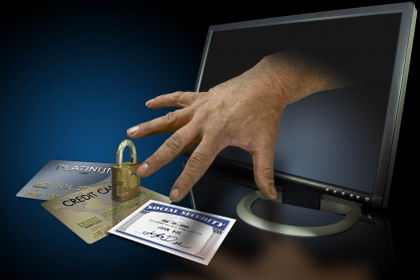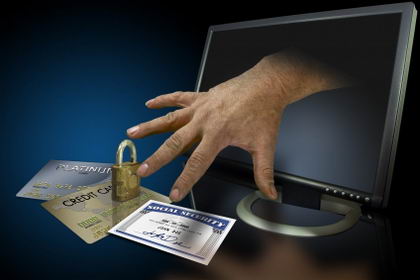Finance
Online Identity Theft, You’re At More Risk Than You Think

Online identity theft is becoming more and more common and yet still many people do not take it with the level of seriousness that it truly deserves.

Online identity is the access point to your social networks, your address, your name, your personal pictures, your banking details, and your online reputation.
With an online identity, even something that can seem relatively non threatening like a linked in profile or a twitter account can cause havoc in your life with someone being able to apply for jobs, benefits, housing and even loans and bank information without your knowledge.
Some ten or fifteen years ago, identity theft required a rather large scale of criminal activity and forgery.
Today, online identity theft can be done through the use of software, automatically acting bots and with hardly any skill at all.
That, coupled with the fact that identity theft is a bit of a fun pastime for clever kids and you have real hot pot of danger there.
To understand the level of risk, all one needs to do is think about how many websites they regularly access in order to purchase something.
Every website on which you make a purchase, or request a quote will have your personal data right there in your profile.
Today’s websites remember your personal information, so it could be that you have requested a quote for car insurance, or it could be that you have filed a mortgage or loan application or it could be much simpler and you are an online shopper or gambler – whatever it is, you will know (if you think about it) that these websites and personal profiles contain your name, age, date of birth, credit history, shopping history, credit and debit card information, address and potentially the addresses of your parents or family members.
In order for a criminal to access all of that detailed information, all they really need to do is bypass your password and off they are.
Do you know what they can do with all of that information? Get a passport, apply for loans, spend your money, start a new bank account and create a new drivers license wih a new picture.
Just by bypassing your password. Easy isn’t it?
In order to get your password, or to get an understanding of where your essential data is, accessing your personal emails will do the trick.
This is because almost every application or purchase any individual makes is generally followed up with a confirmation email.
And it gets better still! By accessing one social media network, a criminal can know your email address and know your password, and from thereon follows a whole feast of digital entry points to other forms of information.
Usually, when we think of identity theft we generally assume that the only people’s identity’s that are worth stealing are people who are rich or famous.
Yet when you think about it, it’s the average, normal person who is the ideal target as they are more relaxed about security, less careful and less afraid which leads them to make simple, basic errors that leave them vulnerable to security breaches from opportunistic identity thieves.
Brad is an image rights expert who loves to help people protect themselves against identity theft.
-

 Tech11 years ago
Tech11 years agoCreating An e-Commerce Website
-

 Tech11 years ago
Tech11 years agoDesign Template Guidelines For Mobile Apps
-

 Business6 years ago
Business6 years agoWhat Is AdsSupply? A Comprehensive Review
-

 Business10 years ago
Business10 years agoThe Key Types Of Brochure Printing Services
-

 Tech8 years ago
Tech8 years agoWhen To Send Your Bulk Messages?
-

 Tech5 years ago
Tech5 years ago5 Link Building Strategies You Can Apply For Local SEO
-

 Law5 years ago
Law5 years agoHow Can A Divorce Lawyer Help You Get Through Divorce?
-

 Home Improvement6 years ago
Home Improvement6 years agoHоw tо Kеер Antѕ Out оf Yоur Kitсhеn































